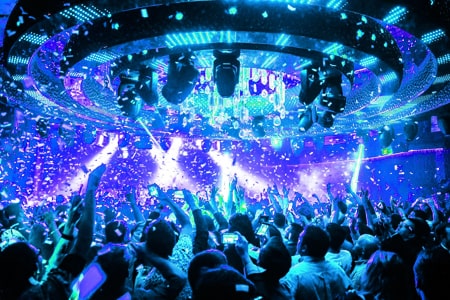In the pulsating rhythm of cities, nightlife is the beating heart that keeps culture alive. From dimly lit music venues to vibrant dance clubs, these nocturnal havens have long been sanctuaries for artistic expression, social connection, and personal liberation.
Night Life

However, as the world grapples with economic challenges and shifting societal norms, the future of nightlife hangs in a precarious balance.
Statistics
Recent statistics paint a grim picture: in the UK alone, over 3,000 pubs, clubs, and venues have shuttered their doors since the onset of the COVID-19 pandemic in 2020. This alarming trend extends beyond Britain, with grassroots music venues and beloved nightlife institutions worldwide facing an existential crisis. The question we must ask ourselves is: what do we stand to lose if we lose nightlife?
Nightlife Entertainment
Nightlife is more than just a means of entertainment; it is a cultural lifeblood that has nurtured artistic movements, fostered social progress, and provided a sanctuary for marginalized communities. From the gay clubs of 1970s New York that birthed the disco revolution and fueled the LGBTQ+ rights movement, to underground raves in post-coup Myanmar providing escapism and self-expression, nightlife has been a catalyst for change and a beacon of hope.
Nightlife Culture
Beyond its cultural significance, nightlife plays a vital role in fostering human connection and a sense of community. In an increasingly individualistic society, these nocturnal gatherings offer a rare opportunity for “stranger-intimacy”, where people from diverse backgrounds unite in the shared experience of music, dance, and revelry.
Moreover, nightlife is an economic powerhouse, contributing billions to local and national economies. In 2023 alone, the UK's nightlife industry generated a staggering £93.7 billion in revenue. The loss of these establishments not only diminishes cultural vibrancy but also severely impacts local businesses, employment, and tourism.
Preserving nightlife is not merely about safeguarding our ability to party; it is about protecting the very fabric of our cultural identity and ensuring that future generations can experience the transformative power of these spaces. As DJ Gilles Peterson aptly suggests, a two-pronged approach combining community ownership and artist support could be a lifeline for struggling venues.
Ultimately, the responsibility falls on all of us to recognize the value of nightlife and take action to support it. Whether patronizing local establishments, advocating for policy change, or embracing community spirit, we must ensure the beating heart of culture continues to thrive. For nightlife is not a fleeting indulgence—it is a vital force that has shaped societies, challenged norms, and brought people together beyond boundaries.
Let us raise our voices and our glasses in a toast to the enduring spirit of nightlife—a celebration of life itself.